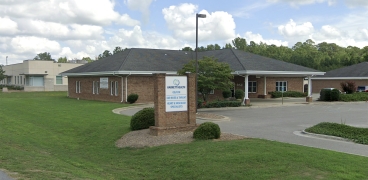Welcome to our guide to atrial fibrillation (AFib) treatment at Cape Fear Valley Health. AFib is a common irregular and often rapid heart rhythm that requires careful management.
What is Atrial Fibrillation?
Atrial fibrillation occurs when the electrical signals in your heart's upper chambers, the atria, become chaotic. This disrupts your heart's normal rhythm. Several factors can contribute to this:
Heart conditions: Existing heart problems such as high blood pressure, coronary artery disease, heart valve disease or congenital heart defects can lead to AFib.
Age: The risk of AFib increases as you get older.
Lifestyle factors: Excessive alcohol intake, smoking, obesity and high stress can contribute to its development.
Other health issues: Conditions such as thyroid problems, diabetes, sleep apnea and other chronic diseases can trigger AFib.
Surgery: Heart surgery might increase the risk of AFib.
In some cases, the exact cause of AFib might not be clear, but managing underlying conditions and maintaining a healthy lifestyle can help in its prevention and management.
Signs and Symptoms of AFib
Atrial fibrillation often presents as a rapid, fluttering heartbeat, which you might feel as heart palpitations. Symptoms can also include:
- Chest pain
- Dizziness
- Fatigue
- Lightheadedness
- Shortness of breath
- Reduced ability to exercise
- General weakness
However, AFib can sometimes occur without any noticeable symptoms.
The condition can cause episodes of irregular heartbeat that may come and go or, in some cases, become persistent.
Recognizing these signs is important for timely treatment. Without treatment, AFib can lead to serious heart complications, including an increased risk of stroke and heart failure.
When to Seek Care for Atrial Fibrillation
Sign 1
If you experience symptoms like such as a rapid, fluttering, or pounding heartbeat ; shortness of breath ; dizziness ; fatigue, or chest pain, it's important to see a doctor.
Sign 2
Even if symptoms seem mild, such as occasional palpitations or light-headedness, consistent occurrences warrant medical attention
Sign 3
If you've had recent changes in heart health, such as heart surgery or a heart attack, and then experience AFib symptoms, get evaluated promptly.
Emergency Symptoms (Call 911)
Seek immediate medical help if you have:
- Severe chest pain
- Fainting
- Severe shortness of breath
- Signs of a stroke (sudden numbness or weakness, especially on one side of the body, confusion, trouble speaking or seeing).



